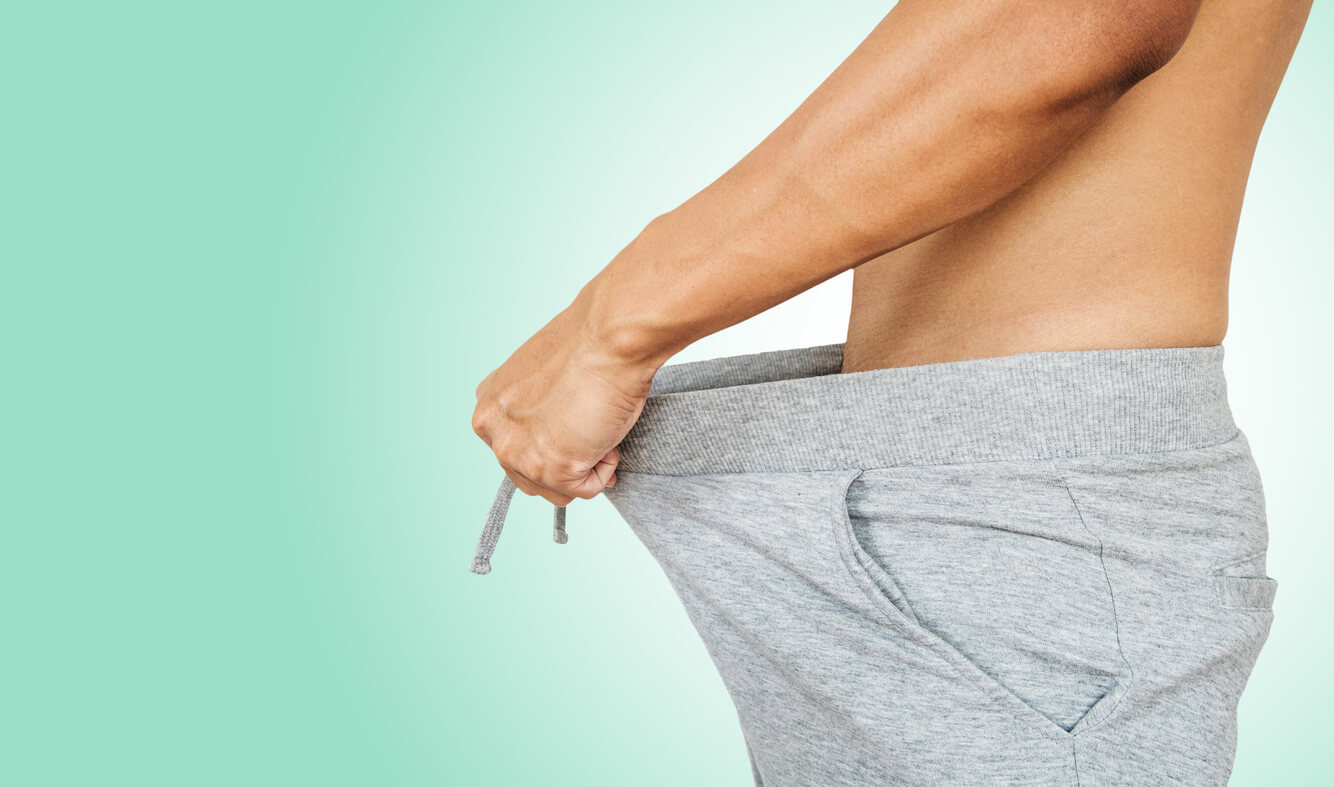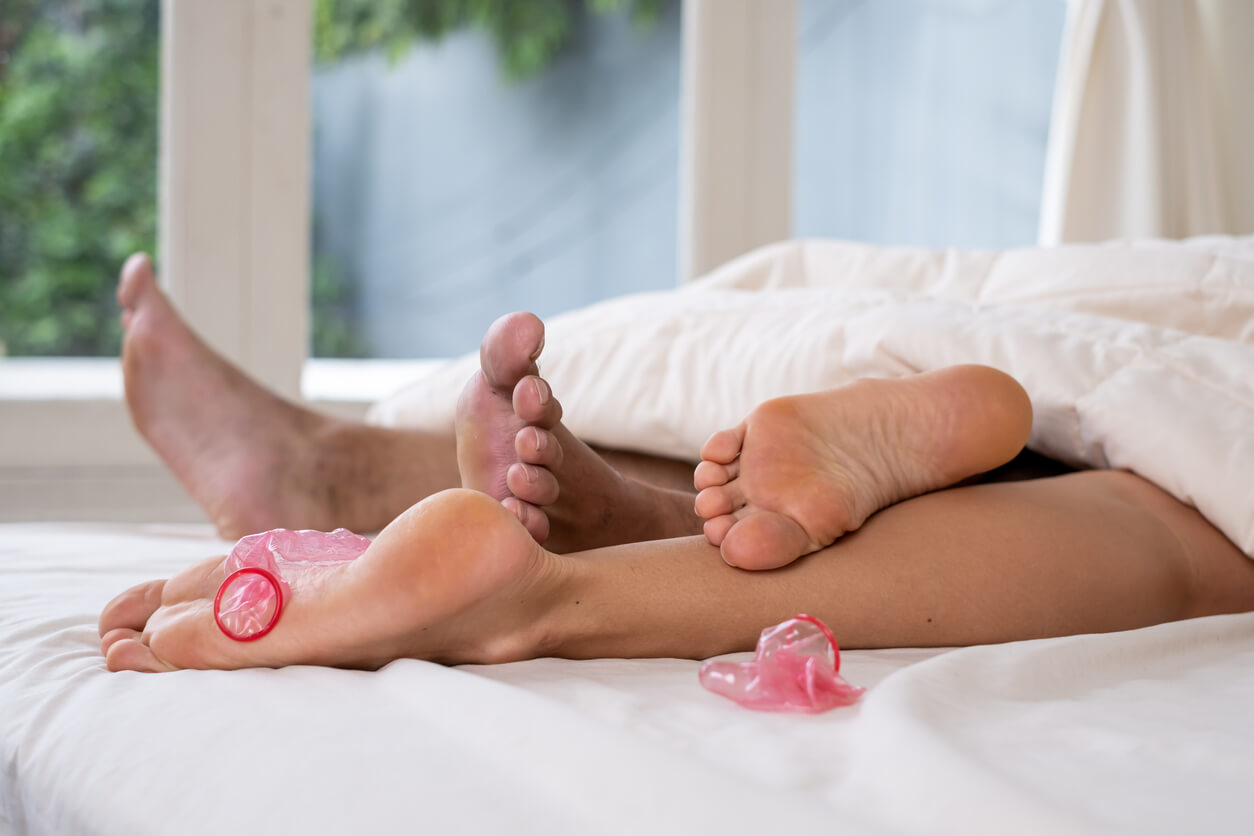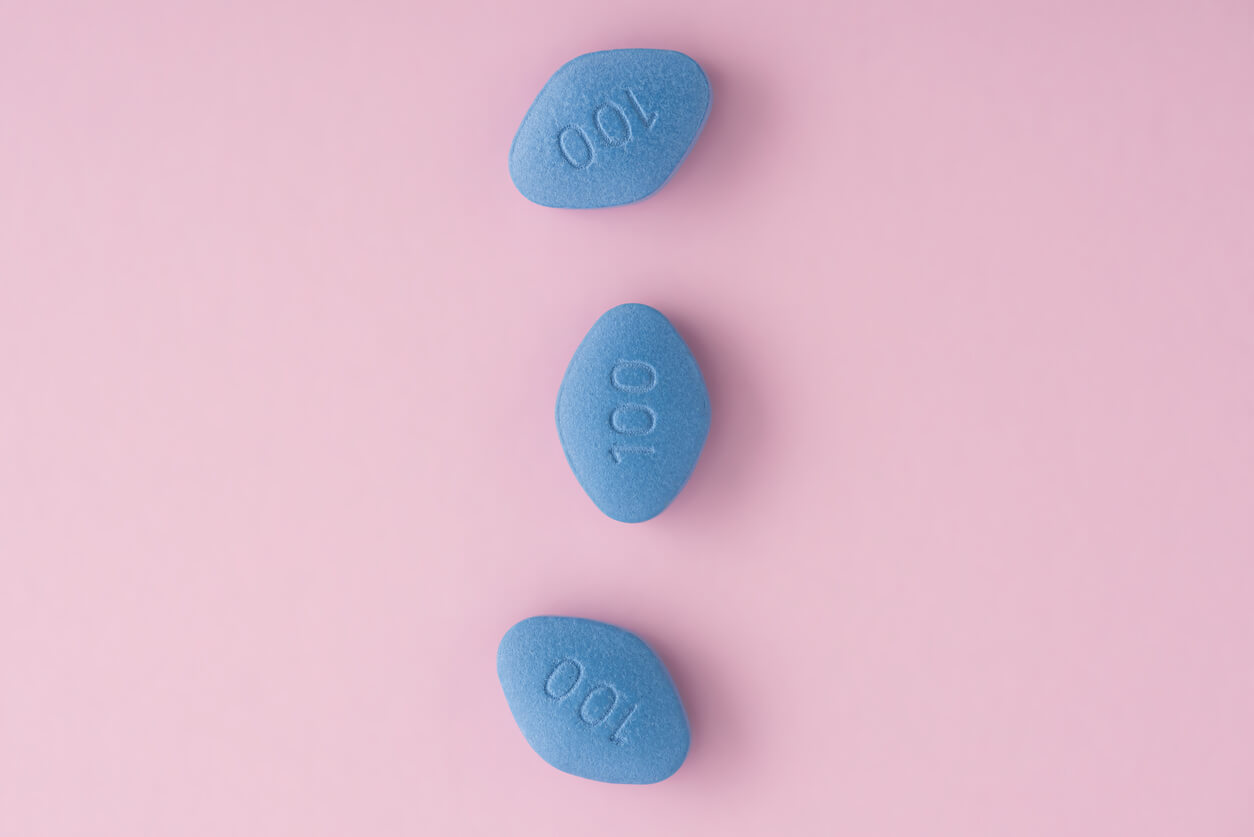10 Natural Ways to Get Harder & Maintain an Erection
Improve your sexual performance and combat erectile dysfunction with these simple strategies
Key takeaways
- Self-care strategies can help achieve harder erections and maintain them for longer without medications.
- If lifestyle changes are ineffective, prescription medication is an option.
- Frequent difficulty in getting or maintaining an erection may indicate erectile dysfunction (ED).
Maintaining an erection is a deceptively complex process. Erectile function requires coordination between your brain, blood vessels, and nervous system.
Of course, it’s totally normal to have some difficulty getting an erection every now and then. But if you keep having trouble getting hard enough for sex, you may be experiencing erectile dysfunction. This article will detail some natural methods you can use to get a harder, stronger erection and fight off ED. These tweaks can improve your sex life, as well as your overall well-being.
How to get a harder erection
There are several self-care strategies you can use to get harder erections.
These include:
- Talking to your partner about your sex life
- Getting regular exercise
- Eating a healthy, balanced diet
- Getting enough sleep
- Monitoring your testosterone levels
- Cutting back on tobacco use
- Reducing your alcohol consumption
- Managing your stress
- Strengthening your pelvic floor muscles
- Managing other health conditions
Lifestyle plays a fundamental role in sex health and erectile function. Adopting some (or all) of these habits can give you results without medication.
1) Talk to your partner
Erection problems are sensitive subjects, but that does not mean you should avoid them. Emotional and psychological factors can cause sexual dysfunction, like performance anxiety.
Open discussions about your sex life are a fundamental part of a healthy relationship. Whether you are experiencing ED or boredom in the bedroom, both you and your partner should communicate about your sexual needs and desires.
Even if the subject is hard to talk about, breaking that ice can ease tension.
Some tips to start this conversation include:
- Pick a specific time and place to talk about your sex life. Don’t surprise your partner. Find a neutral space to talk and plan a time to have an honest conversation.
- Prepare ahead of time. You can create a list of questions or specific talking points to keep the conversation focused and productive.
- Stick to one topic. Don’t try to figure out all your issues at once. Instead, focus on a specific concern, like how to address erectile dysfunction together.
- Offer compliments and suggestions. Avoid blaming each other or criticizing each other. Stick to what you like about your sex life and how you can work together to make it better.
- Be honest. You should avoid blaming or criticizing, but it’s important to be honest and open to establish trust.
- Ask questions. You can better understand what each other wants and needs by asking your partner about their desires, expectations, turn-ons, and more.
If you want professional help, a mental health care provider can offer guidance. They may offer cognitive-behavioral therapy or mindfulness practices to get to the psychological root of your issues. They also may suggest couples counseling for you and your partner.
2) Get regular exercise
Poor blood flow is one of the most common causes of erectile dysfunction. Your heart needs to pump blood to the penis to get it hard for sexual activity. Inactivity raises your risk of high blood pressure, narrowed blood vessels, and heart disease, which makes this job harder.
Regular physical activity improves sexual function. A Harvard study showed that aerobic exercise like brisk walking led to a 41% drop in risk for ED.
The CDC recommends that adults get at least 150 minutes of moderate-intensity aerobic physical activity per week. If that sounds like a lot, it’s not. It comes out to just over 21 minutes daily and can be broken into smaller increments if necessary.
The CDC also recommends adults get at least two days of muscle-strengthening activity. This could be lifting weights, bodyweight exercises, or heavy-duty yard work.
Regular exercise can improve your sexual health while preventing obesity and cardiovascular disease.
3) Eat a healthy diet
High blood pressure and high cholesterol are risk factors for many health conditions, such as obesity and type 2 diabetes.
They are also linked with erectile dysfunction. A healthy diet helps keep blood pressure down and blood vessels open, making blood flow easier. This wards off heart-related health problems while reducing your risk for ED.
The Mediterranean diet, for one, has been shown to improve erectile function.
This diet consists of food such as:
- Fruits (especially berries)
- Vegetables (especially leafy greens)
- Whole grains (like oatmeal)
- Nuts
- Legumes, peas, and beans
- Moderate amounts of fish
Prioritize the foods above while reducing your red meat and dairy product intake. You should also cut back on high-fat, high-sugar, or heavily processed foods. These foods often lack important nutrients and can increase blood sugar and cholesterol levels. Over time, high cholesterol and blood sugar can narrow blood vessels, making it hard to get and maintain an erection.
4) Get enough sleep
Poor sleep and sleep disorders have been linked to erectile dysfunction. Not getting enough sleep can also cause you to develop plaque in your arteries (atherosclerosis). This can affect erections.
Aim for 7-8 hours of sleep per night. Improve your sleep quality by:
- Turn in and wake up at the same time every day
- Make sure your sleep environment is dark and quiet
- Turning off all screens (yes, including your phone) at least 1 hour before bed
- Keep your room at a comfortable temperature
- Limit the amount and length of time you spend napping
- Avoid drinking caffeine late in the day
- Consider taking melatonin supplements 1 hour before bedtime
If you still have problems getting to or staying asleep, get medical advice from a healthcare provider. They may offer additional sleep hygiene tips or screen you for a sleep disorder like sleep apnea.
5) Monitor your testosterone levels
Low testosterone is a common cause of ED. After the age of 30, a man’s body begins to produce less testosterone. Over time, this leads to a gradual reduction in testosterone levels. Nearly 40% of men over the age of 45 experience low testosterone levels.
Low testosterone levels can lead to a decreased sex drive and sexual dysfunction. Other signs of low testosterone levels include:
- Depression
- Fatigue
- Infertility
- A decrease in muscle mass and strength
- A decrease in facial/ body hair
- Osteoporosis (decrease in bone mass)
- Development of breasts
Low testosterone is usually diagnosed with a blood test. If you are experiencing symptoms of low testosterone, speak to a healthcare provider to discuss evaluation.
6) Cut down on your tobacco use
If you smoke, quit. Smoking wreaks havoc on your heart and your brain. It also seriously affects your cardiovascular function, making it hard for blood to get to the penis during sexual activity. Nicotine, in particular, inhibits the effectiveness of nitric oxide, a chemical that opens up blood vessels.
Struggling to cut back? Talk to yout healthcare provider. They can help you consider smoking cessation treatments like nicotine replacement therapy, counseling and support groups.
7) Reduce your alcohol consumption
Alcohol’s effect on sexual performance isn’t a myth of men’s health. Drinking excess amounts of alcohol can lead to low sex drive and impaired sexual performance. Chronic alcohol abuse can also cause increased blood pressure, poor sleep, and other barriers to strong erections.
If you aren't sure where to start, practicing sober curiosity is a great way to be more mindful of your drinking habits.
A healthcare provider can also recommend medication or lifestyle therapies to help you cut back on your consumption. This can improve your sexual performance while preventing severe health complications.
8) Manage your stress
Sexual dysfunction is a common side effect of chronic stress. Stress releases a hormone called cortisol. Elevated cortisol levels can affect testosterone levels and increase your risk of ED.
Some tips to manage stress include:
- Get regular exercise
- Eat a healthy diet
- Get plenty of sleep
- Reduce tobacco, alcohol, and substance use
- Practice deep breathing
- Use guided meditation
- Manage time spent on social media
- Connect with others
Reducing stress can improve your sex life. Decreasing cortisol levels also lowers your risk of conditions such as:
- High blood pressure
- High cholesterol
- Heart disease
- Substance abuse
- Overweight or obesity
9) Strengthen your pelvic floor
Kegel exercises are not just for women. You need some musculature in the pelvic floor to maintain hard, long-lasting erections. Muscles keep blood from flowing out of the penis when it is erect. Keeping these muscles strong is easy and may help reverse erectile dysfunction.
Here’s a common Kegel exercise to try:
- Lie on your back with your knees bent and pointed upwards. Your hands should be flat on the floor.
- Imagine that you are trying to stop the flow of urine midstream or attempting to prevent passing gas. The muscles you engage for these actions are your pelvic floor muscles.
- Contract (squeeze) these muscles for five seconds, then release.
- Do this eight to ten times. This is a set. Do three to five sets of this exercise per day.
Kegel exercises strengthen the muscles that keep blood in the penis while it is erect. These exercises can also help prevent premature ejaculation.
10) Manage other health conditions
Certain cases of ED can be caused by conditions like diabetes or hypertension (high blood pressure). Managing these conditions can help treat erectile dysfunction.
If you have a previously diagnosed health condition and are experiencing the symptoms of erectile dysfunction, talk to your healthcare provider. They may adjust your dosage or recommend an alternative therapy if you have been taking medication.
When to see a doctor about ED
If you continue to have a hard time getting hard, you should talk to a doctor for erectile dysfunction treatment. They may recommend lifestyle changes like those listed above and prescription medication, if appropriate.
The most common type of ED pills are known as PDE5 inhibitors. These drugs improve blood flow to the penis, making it more responsive to sexual activity.
FDA-approved ED medication includes:
Follow your doctor’s orders regarding when and how to take these drugs. If you experience any side effects, let them know immediately.
How Sesame can help
Don’t wait to get help for ED. Book an online ED appointment on Sesame today to discuss your sexual health with a licensed healthcare provider. These discreet and convenient visits offer an opportunity to address your concerns and discuss potential treatment options for your condition.
Related posts

Erectile dysfunction is common in men and may be a sign of underlying health issues. Learn more about ED, including common causes and treatment options.

30-70% of men experience premature ejaculation at some point. It’s normal to orgasm quickly during sex. However, if it happens repeatedly, it can affect your sex life and self-esteem. Try these tips out to unlock new levels of sexual satisfaction.

Not in the mood? Let’s talk about it. In this blog post, we’ll explore some of the most common causes of low sex drive, along with natural and medical interventions to improve your sexual health and wellness.

Every man is different, and there is no “one-size-fits-all” treatment plan for ED, but use these tips as a starting point toward better sexual health.

Cialis and Viagra are prescription erectile dysfunction drugs. Learn more about the similarities and key differences between these ED treatment options.

In observance of Bladder Health Awareness Month, we’ve compiled a list of easy-to-use tips to keep your bladder in tip-top shape.

Looking to reignite a spark in your relationship, or seeking ways to feel more connected with your own body? Read on for common ideologies and misconceptions about women's libido, along with tips to support your sexual health and well-being.

Wondering how to boost metabolism in a healthy, sustainable way? Check out these seven diet and lifestyle changes that can help improve your metabolic rate long-term.

Overactive bladder syndrome (OAB) is a common medical condition that affects the urinary system. It is characterized by a frequent and strong urge to urinate, often accompanied by sudden, uncontrollable contractions of the bladder muscles.
